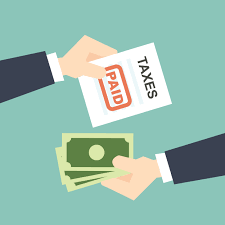The Easiest Way to Get Out of Tax Debt

Nov 06 | 2018

Tax Relief
Tax debt can become a major source of stress. Wouldn’t it be great to just make one payment and have all your tax debt disappear?
With an offer in compromise (OIC), that’s possible. Whether you have major debt, are just getting started in your career, or are in another situation that has made it difficult for you to pay your tax liabilities, an OIC might be a great option to help you get back on track.
(adsbygoogle = window.adsbygoogle || []).push({});
 Pirsch Law
Pirsch Law
What is an OIC?
The IRS’s website describes an OIC as an: “agreement between a taxpayer and the Internal Revenue Service that settles a taxpayer’s tax liabilities for less than the full amount owed.” Essentially, if an individual simply cannot pay their debt to the IRS, there is little chance of them being able to pay in the near future, and they don’t own any significant property, they can offer the IRS a percentage of the money they owe, and if the IRS accepts, the individual’s debt is settled.
However, taxpayers who can pay the liabilities through installments or other means, generally won’t qualify for an OIC. For an individual to qualify for an OIC, the taxpayer must have filed all past tax returns, made all required estimated tax payments for the current year, and made all required federal tax deposits for the current quarter if the taxpayer is a business owner with employees.
(adsbygoogle = window.adsbygoogle || []).push({});
Who Qualifies for an OIC?
While this might sound like a very appealing way to resolve your debt, there are important stipulations to keep in mind. The IRS isn’t going to accept any amount of money in exchange for waving your debt and generally won’t accept an OIC unless the amount proposed is at least equal to the reasonable collection potential (RCP). The RCP is the combined value of the taxpayer’s assets, such as real estate, automobiles, bank accounts, and other property. The RCP also includes anticipated future income.
Additionally, there are three reasons that the IRS would accept an OIC.
- Doubt as to liability. This is when there is a credible reason to believe that an individual’s tax debt does not exist or is not as high as the IRS believes.
- Doubt as to collectibility. This occurs when a taxpayer’s income and combined assets don’t add up to the full amount of the tax debt.
- Effective tax administration. This is when there’s no doubt that the tax debt is owed and that the full amount can be collected, but that doing so would economically cripple the taxpayer irrevocably.
If you think you may qualify, you can visit the IRS’s page on OICs to learn how to apply. While this debt solution may only work for some, it’s important to know your options when dealing with debt of any kind.
(adsbygoogle = window.adsbygoogle || []).push({});










